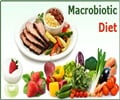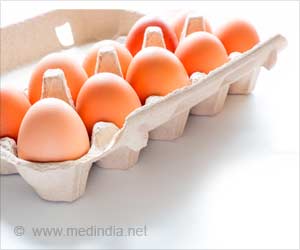Challenging earlier findings that claimed eggs contribute risk to heart disease, scientists have now found that health benefits of eating eggs outweighs its rather 'insignificant' risks.
If you’ve religiously stayed away from eggs fearing the “bad cholesterol” and risk of heart disease, scientists can lay those fears to rest. According to them, the health benefits of eating eggs prevail over its rather 'insignificant' risks.
In a recent study, scientists estimated that eating one egg per day is responsible for less than 1 percent of the risk of coronary heart disease (CHD) in healthy adults.On the other hand scientists found that lifestyle factors including poor diet, smoking, obesity and physical inactivity contribute 30 to 40 percent of heart disease risk, depending on gender.
Also, it was found that unavoidable risk factors, such as genetics, and potentially treatable risk factors, such as hypertension and diabetes, accounted for 60 to 70 percent of heart disease risk.
In the study the researchers evaluated the risk of heart disease associated with egg consumption compared to modifiable lifestyle risk factors (smoking, poor diet, being overweight or obese, physical inactivity).
And now it has been shown that healthy adults can eat eggs without significantly affecting their risk of heart disease.
The study authors used data from the 1999-2000 and 2000-2001 National Health and Nutrition Examination Surveys (NHANES) to categorize the U.S. adult population into various groups based on modifiable lifestyle risks. These populations account for 85 percent of all U.S. males ages 25 and older and 86 percent of U.S. females ages 25 and older.
Advertisement
The study supports decades of research challenging the outdated myth that the cholesterol in eggs is linked to increased heart disease risk.
For example: Research has found that overweight men who eat eggs while on a carbohydrate-restricted diet have a significant increase in their HDL levels (the "good" cholesterol) compared to men who do not eat eggs.
In a recent study, eating two eggs for breakfast, as part of a reduced-calorie diet, helped overweight or obese adults lose 65 percent more weight and reduce their BMIs by 61 percent more than those eating a bagel breakfast of equal calories. In addition, the study found no significant differences between the HDL and LDL cholesterol levels of the egg and bagel eaters.
Eggs are an excellent source of choline. A 2008 study concluded that a diet rich in choline and betaine, a nutrient related to choline, is associated with lower concentrations of homocysteine in the blood. High blood levels of homocysteine are indicative of chronic inflammation, which has been associated with cardiovascular disease, Alzheimer's and dementia.
Eggs offer a number of beneficial nutrients. One egg has 13 essential vitamins and minerals and is an excellent source of choline and selenium and a good source of high-quality protein, vitamin B 12, phosphorus and riboflavin.
In addition to providing one of the most affordable sources of all-natural, high-quality protein, eggs provide a valuable source of energy and help maintain and build the muscle tissue needed for strength.
The study was published online in the journal Risk Analysis.
Source-ANI
TAN/M












